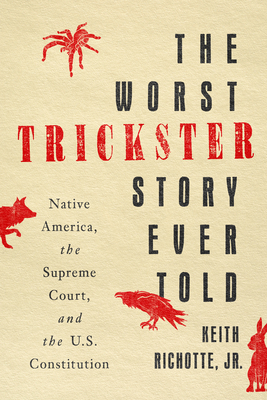The Worst Trickster Story Ever Told: Native America, the Supreme Court, and the U.S. Constitution

The Worst Trickster Story Ever Told: Native America, the Supreme Court, and the U.S. Constitution
When did the federal government's self-appointed, essentially limitless authority over Native America become constitutional? The story they have chosen to tell is wrong. It is time to tell a better story. Thus begins Keith Richotte's playful, unconventional look at Native American and Supreme Court history. At the center of his account is the mystery of a massive federal authority called plenary power. When the Supreme Court first embraced plenary power in the 1880s it did not bother to seek any legal justification for the decision - it was simply rooted in racist ideas about tribal nations. By the 21st century, however, the Supreme Court was telling a different story, with opinions crediting the U.S. Constitution as the explicit source of federal plenary power. So, when did the Supreme Court change its story? Just as importantly, why<
PRP: 186.00 Lei
Acesta este Prețul Recomandat de Producător. Prețul de vânzare al produsului este afișat mai jos.
148.80Lei
148.80Lei
186.00 LeiLivrare in 2-4 saptamani
Descrierea produsului
When did the federal government's self-appointed, essentially limitless authority over Native America become constitutional? The story they have chosen to tell is wrong. It is time to tell a better story. Thus begins Keith Richotte's playful, unconventional look at Native American and Supreme Court history. At the center of his account is the mystery of a massive federal authority called plenary power. When the Supreme Court first embraced plenary power in the 1880s it did not bother to seek any legal justification for the decision - it was simply rooted in racist ideas about tribal nations. By the 21st century, however, the Supreme Court was telling a different story, with opinions crediting the U.S. Constitution as the explicit source of federal plenary power. So, when did the Supreme Court change its story? Just as importantly, why<
Detaliile produsului










